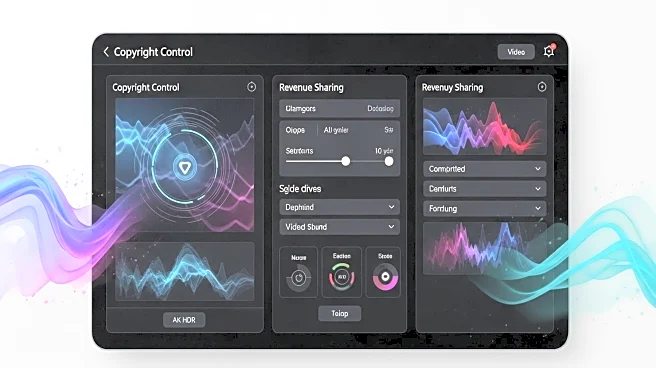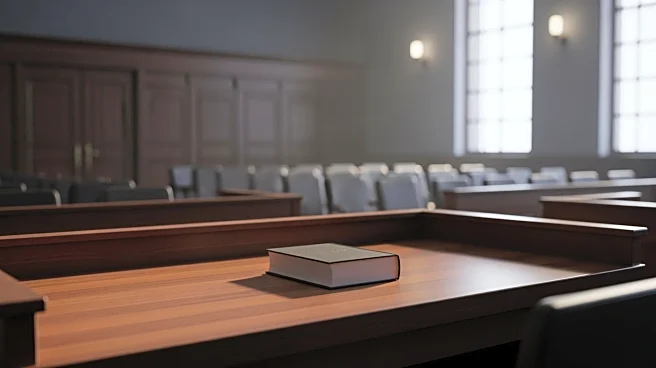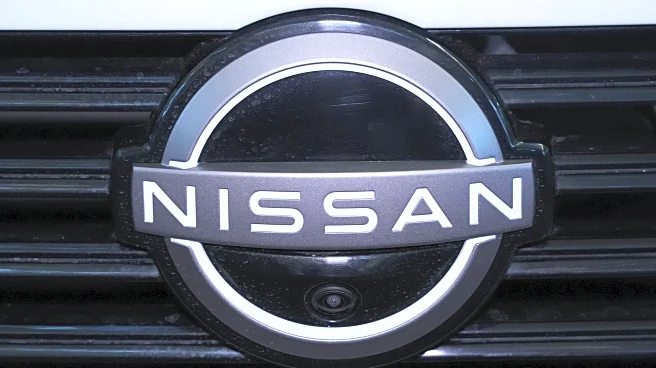What's Happening?
OpenAI, supported by Microsoft, is implementing new measures to allow content owners to control how their characters are used in its newly launched video app, Sora. This initiative includes a revenue-sharing model for rights holders who permit the use of their characters in AI-generated videos. OpenAI's CEO, Sam Altman, emphasized that this move aims to provide television and movie studios with greater control over their content's usage. The app, which allows users to create and share 10-second AI videos, has already attracted significant attention. However, some major studios, such as Disney, have opted to block their characters from being used in the app.
Why It's Important?
This development is significant as it addresses the growing concerns among studios and creators about the use of their content by AI tools. By introducing these controls, OpenAI is attempting to balance innovation with the protection of intellectual property rights. The revenue-sharing model could set a precedent for how AI platforms manage copyrighted material, potentially influencing industry standards. As AI-generated content becomes more prevalent, the need for fair compensation and protection for creators is increasingly critical. This move by OpenAI could impact how other tech giants, like Meta Platforms and Alphabet, approach AI video creation and copyright issues.
What's Next?
OpenAI plans to test the revenue-sharing system to refine its approach, aiming to establish a fair model across its products. The response from major studios and creators will be crucial in shaping the future of AI-generated content. As the industry evolves, the balance between creative freedom and copyright protection will continue to be a focal point. The actions of competitors like Meta and Alphabet, who are also expanding into AI video creation, will further influence the landscape. Stakeholders will be closely monitoring how these developments affect the market and the broader implications for intellectual property rights.
Beyond the Headlines
The introduction of these controls by OpenAI highlights the ethical and legal challenges faced by AI companies in managing intellectual property. As AI tools become more sophisticated, the potential for misuse of copyrighted material increases, necessitating robust frameworks to protect creators. This situation underscores the need for ongoing dialogue between tech companies, rights holders, and policymakers to ensure that innovation does not come at the expense of creators' rights. The outcome of OpenAI's initiative could lead to long-term shifts in how AI-generated content is regulated and monetized.










